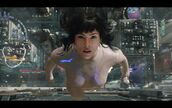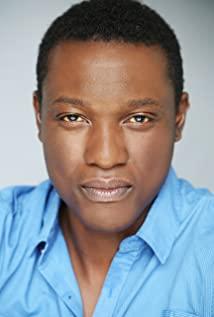--------Western Philosophy Elective Course Semester Medium and Small Papers
One afternoon during the summer vacation of my freshman year, I swiped a piece of news from my mobile phone that a head transplant operation performed by a Chinese scientist was successful. At that time, I thought of a question: if the head belongs to A and the body belongs to B, is this person A or B? I think most people will choose A! This is also the discussion about the self in philosophy. Is the self the body or the mind? What is the mind, so erratic and invisible.
As the title, "Ghost in the Shell" also tells a story about the spirit and the shell. One day in the future, human technology will be highly developed. The Major, played by Scarlett Johansson, is the first full-body prosthetic policewoman who can do anything. So what is segregation? In fact, it refers to transforming a certain part of the human body into a machine, just like artificial hearts and prosthetics that are now allowed by technology. But the Major has completely prostheticized himself (forced), that is, the brain has also been machined. The question is, is the major a robot or a human? In the film, the Major also often wonders about his authenticity, which I think is also the core theme of the film. The mysterious atmosphere of cyberpunk in the film is well created, but it is still too Hollywood. Compared with the philosophical discussion of the Japanese animation version of the gods, it is still much inferior.
Back to the topic of "self" that has been discussed for a long time.
If we feel that our body is the real existence that we can touch, it is ourselves. Then please ask ourselves, the cells of the human body are constantly renewed, and they will be completely renewed once every 120 to 200 days. Are we still ourselves? If we really become the "major" in the film, will we be able to admit that we are robots?
Another way of thinking, if thoughts are ourselves. What is the ego in the mind?
Hypothesis 1, the self is the memory that is constantly being accumulated, and my continuous memory constitutes the self. This theory is actually fragile, simply because memory is so unreal to humans. In the future, if human beings can really become prosthetics, amnestics will be inevitable. Does memory really constitute the self? I doubt it.
Assumption two, there is no ego. As Buddhism says, the so-called self does not exist, and there is no thing about me in the world.
Hypothesis three, we have many selves, but we mistakenly believe that we have only one self. Whether it is the vertical development of time or the horizontal arrangement, all kinds of self exist simultaneously.
Thinking of this, we can't help but wonder. In fact, the simple discussion about the self listed above is not comprehensive, because we have predetermined a condition that the mind and body are separate. There has also been a long discussion in the history of philosophy.
Descartes proposed that I think, therefore I am, to prove the credibility of all the knowledge in his mind. But with regard to the relationship between body and mind, he is mediated by God. Later great philosophers also started a series of discussions on his basis.
Leibniz proposed that body and mind do not interact, they are separate and their harmony is only the result of God's harmony.
Spinoza believed that mental and physical events are actually one.
In fact, in subsequent human experiments, Spinoza's theory is more in line with reality. I am more in favor of functional theory, that is, the brain is actually a very sophisticated machine that can generate consciousness under the action of hormones and neuroelectricity. That is to say, people like the Major are possible in the future, and we must prepare for the day when robots become self-aware.
As a human tool, people are often afraid of robots.
The relationship between man and tool has always been delicate. Millions of years ago, a chimpanzee accidentally picked up a large bone as a tool, ushering in a new era on Earth.
With the advancement of human technology and the continuous development of tools, we can modify genes and create robots at will. When we can finally play God and make conscious robots, it will dawn on us that we are not so different from our tools.
I don't want to see this scene happen.
View more about Ghost in the Shell reviews











